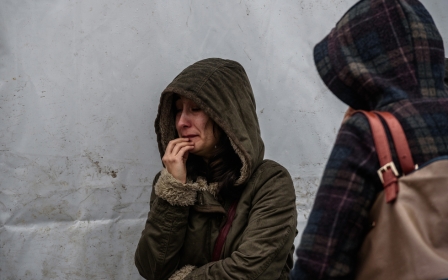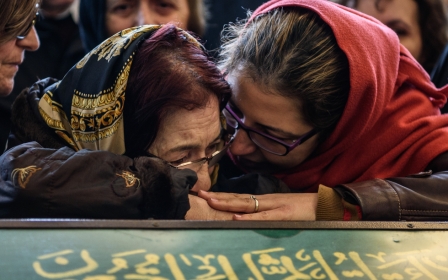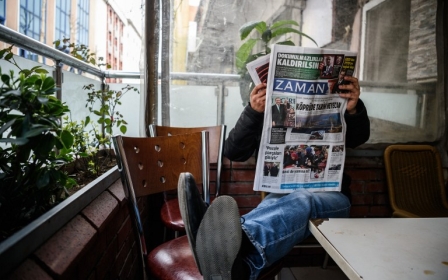Erdogan demands end to pro-Kurdish MP immunity

Turkey's president has urged parliament to strip pro-Kurdish MPs of immunity from prosecution, days after he said he was seeking to widen the definition of terrorism and as Turkish police arrested eight lawyers in a crackdown on pro-Kurdish activists.
Recep Tayyip Erdogan said on Wednesday that parliament needed to "swiftly" end the immunity of MPs, and accused them of "inciting terrorism".
"We must swiftly finalise the issue of immunities. Parliament must take steps on this issue swiftly," Erdogan said in a speech in Ankara, also repeating his call to expand the definition of terrorism.
The calls follow repeated requests from Prime Minister Ahmet Davutoglu's office to lift immunity from prosecution from senior HDP party figures including co-leaders Selahattin Demirtas and Figen Yuksekdag, and deputies Selma Irmak, Sirri Sureyya Onder and Ertugrul Kurkcu. All have denied being members of a banned "terrorist" group and inciting hatred.
"I no longer see as legitimate political actors the members of a party which is operating as a branch of the terrorist organisation," Erdogan said, repeating his claim that the HDP was a front for the outlawed Kurdistan Workers' Party (PKK).
"There is no other state than the Turkish Republic and will never be."
His call came hours after eight lawyers from the pro-Kurdish Libertarian Lawyers' Association (OHO) were arrested by police, apparently without explanation.
The OHO had submitted a petition asking Turkey's Constitutional Court to declare the military's offensive against the PKK in the southeast as illegal.
The PKK, which began an armed struggle against the Turkish state in 1984 for more autonomy, restarted its fight last year after a ceasefire collapsed, calling for "uprisings" in the towns of the Kurdish-dominated southeast.
Erdogan on Monday said he wanted to see the definition of terrorism in Turkey expanded in the wake of a suicide car bombing that killed 35 people in Ankara on Sunday, blamed by the government on the PKK.
"There's no difference between a terrorist with a gun and bomb in his hand and those who exploit their positions, pens and titles and put them at terrorists' disposal to achieve their aims," Erdogan said on Monday.
"The fact that they are MPs, academics, writers, journalists, NGO executives does not change the fact that they are terrorists.
"Those who explode the bomb and pull the trigger can be terrorists but those who help that action achieve its goal are their supporters and abetters."
In January, a "petition for peace" signed by 1,200 Turkish and foreign intellectuals condemned "massacres" allegedly committed by the security forces in operations against PKK rebels in several towns that had been placed under curfew.
The petition sparked a furious response from Erdogan, who said the academics had fallen into a "pit of treachery".
Last week, the teachers' union Egitim-Sem said that prosecutors had filed 153 criminal proceedings against signatories of the petition, nine teachers had been fired and 27 others suspended.
Human Rights Watch (HRW) condemned the arrests as "the latest attack on free speech in Turkey".
"President Erdogan’s vicious campaign against the academics is part of his drive to banish, punish and silence all critical voices in Turkey," HRW's Emma Sinclair-Webb said in a statement, urging the authorities to drop the cases.
Ankara is pressing Brussels for accelerated EU membership in return for stemming the flow of migrants across its territory to Europe.
A proposed deal is to be considered by a European summit on Thursday and Friday.
New MEE newsletter: Jerusalem Dispatch
Sign up to get the latest insights and analysis on Israel-Palestine, alongside Turkey Unpacked and other MEE newsletters
Middle East Eye delivers independent and unrivalled coverage and analysis of the Middle East, North Africa and beyond. To learn more about republishing this content and the associated fees, please fill out this form. More about MEE can be found here.




